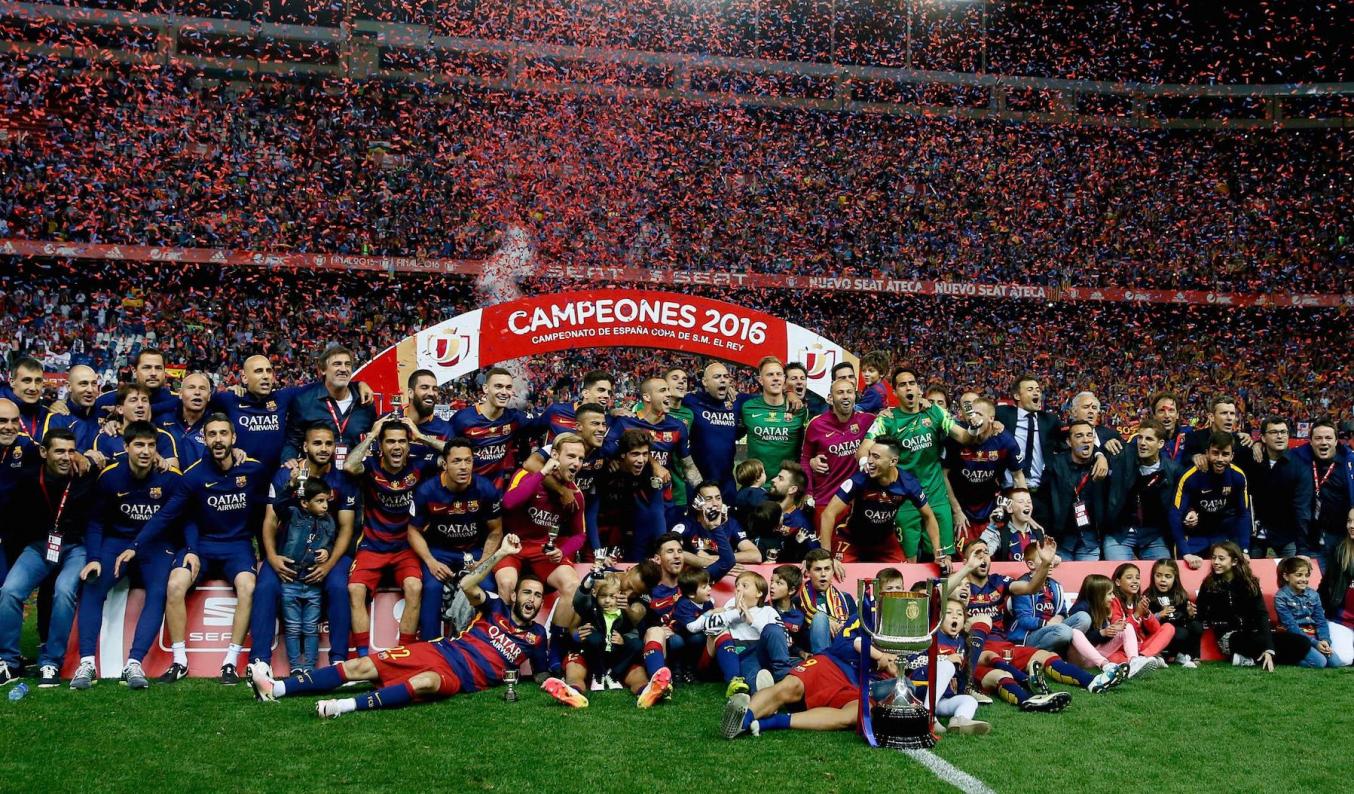
Even among the stratospheric figures of Futbol Club Barcelona, what Nike will pay for sports sponsorship is still overwhelming: the Catalan club will make 155 million euros a year after renewing the contract between the two parties, as announced at the weekend when the culés won another trophy. On Monday, the whole team celebrated their double, the Lliga title and the Copa del Rey, in a party at Camp Nou where brands also played a leading role. As TrevorEdwards, president of NIKE Brand declared, "our deep relationship with FC Barcelona extends Nike's leading position in football, while we are excited by the chance to continue helping the most popular sport in the world grow."
Publicity is an inescapable part of sport today. In the case of sports people it is even clearer: training and decisive matches amid advertising hoardings, press conferences with a beer bottle as a microphone and a sponsored league final. It is the tangible reality of sports sponsorship, which we have just seen on the shirts of FC Barcelona, on the towels of tennis players in the Mutua Madrid Open and in the names of tournaments like the recent Barcelona Open Banc Sabadell de Tennis.
"Sports sponsorship is a very important tool: imagine what Nike would be without (Michael) Jordan or Barça... for some brands sponsorship is key," says JaumeAlemany, marketing, export & communications director of Damm. The director of the Catalan brewery took part in an event held at IESE to explain how the sports sponsorship policy of Estrella Damm was developed in the sports industry, which has been able to generate emotions all over the world. That is why brands link themselves to one sports person or another: they do not want to lose the chance to take part in this sentimental carousel. "Nevertheless, the beer we sell with Barça doesn't pay for even 1% of the sponsorship. We only look for those that can publicise the image and raise the visibility of the brand," says Alemany.
| Club president J.M. Bartomeu and E.Crous, director general Damm G. Parga-FCB |
The Estrella Damm firm is from 2014 to 2018 a Premium Partner of FC Barcelona, a position that involves being the club's exclusive beer brand in a good part of the world. But it is not by any means the only brand visible around Barça. The main ones are Nike and Qatar Airways, followed by the premium partners Beko, the aforementioned Estrella Damm, Audi, Etisalat and la Caixa... and the list goes on. Alemany thinks that each sponsor is looking for something different when it becomes associated with a certain sports club: "Beko is looking for visibility and Estrella to be associated with the club's values. They are assets with very distinct objectives. For us, FC Barcelona is an example of building brand value," he points out.
A Mestalla soaked in Damm beer
Unlike its popularity in Catalonia, with València CF, Estrella is looking for a way in with Valencian consumers, and following a different strategy. "Valencia is a very important city, it is a place that matters to us, but Amstel was already there," admits Jaume Alemany.
 |
| Match between FC Barcelona and València CF, with Estrella Damm advertising. VCF |
Today, the Valencia Mestalla stadium is dominated by a large logo of the brand, visible from the street, that shows the work done that began in the time of sailing's America's Cup held in the Valencian capital in 2007. That event owned the market to the firm, which course a fairly unknown sports competition to Valencians to make it more popular. Estrella Damm even opened a summer terrace, a 'den' located on the dock of Valencia's port, which was the most highly frequented that summer by international vessels.
"It is important to keep in mind the values you want to share with the brand: when we do something with any of the clubs, you look to identify both things, but it is important to find your own voice when it comes to communicating," adds Alemany. It is a line of communication they have also explored in the world of tennis, as since February 2016 -and until 2019- they are sponsors of the Barcelona Open Banc Sabadell de Tennis. "The Godó allows us to work with the premium image that a first class event gives you. This year we tried to set up a restaurant area with the city's best restaurants to show that we are also part of that," he says, alluding to the Village in which different brands, such as Mapfre, Banc Sabadell, Schweppes, Cepsa, Rolex or Adecco, were also located. .
| |
| Stand de Schweppes al Barcelona Open Banc Sadadell de tennis. N. Navarro |
In certain events, such as the tennis tournament in question, the sponsorship of the brand goes beyond shirts and can be seen in their own stands so that directors and clients can socialise as part of their business dealings. The Italian MSC Cruceros, the tournament sponsor for the second year running, is one of those firms. Its director general, EmilianoGonzález, tells VIA Empresa that the reason for being there is due to the company's links with the world of sport. "It is undoubtedly a way of making the brand known and in its turn is used so that all of our clients, which are travel agents, come and, at the same time, to provide information about our routes, catalogues, and so on," he says.